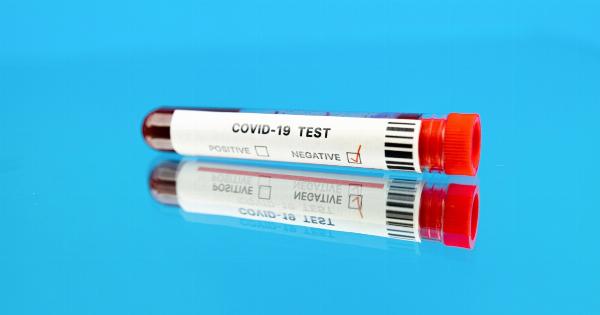Numbness in fingers can be a very annoying and painful condition that can seriously affect your daily life, activities, and ability to work. There are several possible causes of this problem, ranging from minor issues to serious medical conditions.
In this article, we will explore the different possibilities and what you can do to treat and prevent numbness in fingers.
Carpal Tunnel Syndrome
Carpal tunnel syndrome is a condition that occurs when the median nerve, which runs from your forearm to your hand, gets compressed or pinched as it passes through the carpal tunnel in your wrist.
This can cause pain, tingling, or numbness in your fingers, hand, and wrist.
The common causes of carpal tunnel syndrome include repetitive hand movements, wrist injuries, arthritis, diabetes, pregnancy, obesity, and hypothyroidism. Treatment options may include rest, physical therapy, medication, injections, or surgery.
Cervical Spondylosis
Cervical spondylosis is a degenerative condition that affects the cervical spine or neck. It can cause pain and numbness in your fingers, arms, and shoulders, as well as stiffness and limited mobility.
The causes of cervical spondylosis include aging, wear and tear, degeneration, poor posture, lack of exercise, and genetic factors. Treatment options may include physical therapy, medication, injections, or surgery.
Herniated Disc
A herniated disc is a condition that occurs when a spinal disc in your back ruptures or bulges, which can compress or irritate the nerves that control your arms and hands.
This can cause pain, weakness, and numbness in your fingers, hands, and arms, depending on the location of the affected disc.
The common causes of herniated disc include aging, wear and tear, poor posture, lifting heavy objects, sports injuries, or accidents. Treatment options may include rest, physical therapy, medication, injections, or surgery.
Peripheral Neuropathy
Peripheral neuropathy is a condition that occurs when the nerves outside of your brain and spinal cord get damaged or destroyed, which can cause various symptoms, including numbness in your fingers, toes, and other body parts.
This condition can have various causes, such as:.
- Diabetes
- Alcoholism
- Infections
- Toxins
- Autoimmune diseases
- Trauma
- Tumors
The treatment options for peripheral neuropathy depend on the underlying cause and severity of the condition, but may include medications, therapy, or surgery.
Blood Flow Problems
Problems with blood flow to your fingers can also cause numbness or tingling, and can be a sign of vascular diseases such as:.
- Raynaud’s disease
- Peripheral artery disease
- Thrombosis or embolism
These conditions can cause various symptoms, including color changes in your fingers, coldness, skin ulcers, and pain. Treatment options may include lifestyle changes, medications, or surgery.
Underlying Medical Conditions
Some underlying medical conditions can also cause numbness in your fingers as a symptom, such as:.
- Multiple sclerosis
- Lupus
- Guillain-Barré syndrome
- Brain tumors or injuries
- Spinal cord disorders
- Parkinson’s disease
If you have any of these conditions, it is important to seek medical help and follow your doctor’s advice, as the treatment options may vary depending on the diagnosis and severity of your condition.
Poor Circulation
Finally, poor circulation due to lifestyle or health factors can also cause numbness in your fingers, including:.
- Sedentary lifestyle
- Smoking
- Obesity
- High blood pressure
- High cholesterol
- Diabetes
To improve your circulation and prevent numbness in your fingers, you can try various lifestyle changes, such as:.
- Exercising regularly
- Eating a healthy diet
- Avoiding smoking
- Managing your stress
- Taking breaks from repetitive hand movements
- Wearing gloves or warm clothing in cold weather
Conclusion
Numbness in fingers can be a result of many different factors, ranging from minor issues to serious medical conditions.
By exploring the possibilities and understanding the underlying causes of your numbness, you can take steps to prevent and treat this condition. Remember to seek medical help if your symptoms persist or worsen, as early diagnosis and treatment can make a big difference in your quality of life.




























